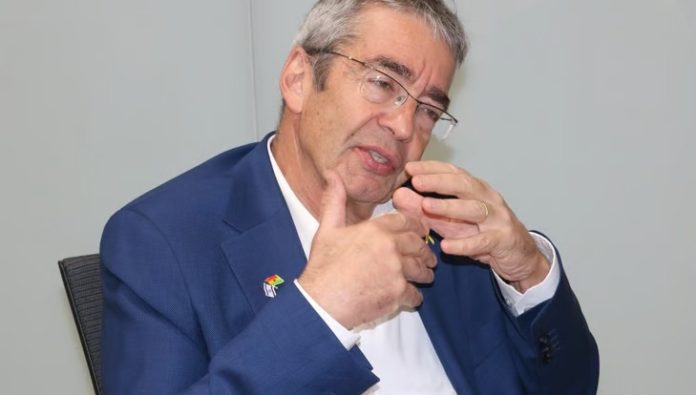The Israeli Ambassador to Ghana, His Excellency Roey Gilad, has expressed optimism that the recent 12-day military campaign against Iran will pave the way for greater stability in the Middle East.
Speaking at a press briefing in Accra last week, the ambassador firmly defended Israel’s actions, describing Iran as the “primary source of instability” in the region.
According to Ambassador Gilad, the campaign was not only an Israeli operation, but one undertaken on behalf of moderate forces across the region. He cited widespread support, both overt and covert, from countries such as Egypt, Saudi Arabia, Jordan, the United Arab Emirates, Bahrain and Kuwait, emphasising that these nations share a common goal of curbing Iranian influence.
“This war, though carried out by Israel, was also on behalf of all the moderate elements who desire peace and stability in the Middle East. Iran has been the central destabilising force, trying to exert control over the region through proxies and nuclear ambition,” he said.
While asserting that regime change in Iran was not the objective, the ambassador reiterated that the Israeli strikes had significantly damaged Iran’s nuclear and ballistic missile infrastructure.
Key targets reportedly included sites in Isfahan and Natanz, centers for Iran’s nuclear activities, though Gilad acknowledged that full assessments of the damage are still underway.
“We managed to cause severe damage. Whether it sets Iran back a few months or a few years, it’s too early to say. American forces also struck deeper sites that we couldn’t reach, most likely causing additional significant destruction,” he said.
He added that a clear distinction was drawn between the two sides: while Iran targeted civilian infrastructure, Israel focused exclusively on military objectives.
The ambassador also acknowledged the toll the conflict has had globally, including rising fuel prices that have impacted economies across Africa.
“We are aware of the economic cost this war brought upon nations like Ghana. We didn’t ignore it. But our hope is that this operation will shift the region toward a new era of peace,” he said.
Touching on Iran’s domestic situation, Mr. Gilad criticized the Islamic Republic’s governance, describing life under the regime as “miserable” and “oppressive.”
He noted that while some support for the government still exists, fear suppresses dissent.
“Iran is not a democracy. The regime rules with an iron fist. People are afraid. The opposition is strong, but no one wants to get their head broken by a machete.
“The people have the right to ask their government: What’s next? Billions were spent on nuclear and ballistic programmes, and now it’s all gone.”
The Ambassador urged the Iranian government to redirect its focus inward, toward improving the lives of its 90 million citizens, instead of exporting conflict.
“Electricity is unreliable. Welfare is poor. Unemployment is high. The budget is broken. Yet, the government pours billions into weapons. They promised the people the destruction of Israel — and they have failed. Now is the time for Iran to fix its own house.”
The campaign, which ended with quiet mediation led by the United States, marks a significant escalation in the long-standing tensions between Israel and Iran. As the dust settles, the broader geopolitical implications for the region and the world remain to be seen.









